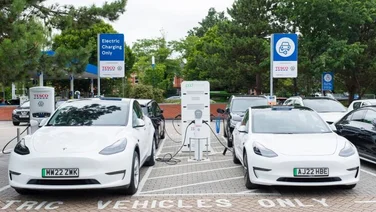- An estimated 2.9 million rental properties will need to be improved
- These changes would cost £23.4bn
- Half (50%) of landlords are concerned the government will introduce costly charges
An estimated 2.9 million rental properties are at risk of missing the 2030 deadline to reach a minimum EPC rating of C, a new report from Right Move has found.
The analysis in Rightmove’s Greener Home Report found making the necessary improvements to hit the target would cost £23.4bn – an average of £8,074 per property.
Rightmove surveyed more than 14,000 homeowners and renters, as well as more than 1,000 landlords for the report.
The survey also found that while half (50%) of landlords are concerned the government will introduce costly charges for not meeting EPC requirements, one in five (19%) renters think stricter energy efficiency regulations should be the top priority for the new government.
The report and survey also found that 92% of renters say it’s crucial to understand the energy efficiency of their home, compared to 87% of homeowners, showing the growing importance of increasing costs and energy bills in rental properties.
The report claimed that 72% of people would be “willing to change how and when they use energy” if it meant access to cheaper rates at different times of the day.

What are the government’s plans?
The new Labour government plans to launch its Warmer Homes initiative, which will invest £6.6bn to upgrade homes with better insulation and low-carbon heating like heat pumps.
However, Rightmove is calling on the government to consider the following to help make homes greener:
- Design a package of support for homeowners and landlords across the mass market (properties under £400,000) to make green upgrades, through grants or low-interest, long-term loans
- One potential consideration could be to allow landlords to offset the costs of energy efficiency improvements against income tax in the year the costs are incurred rather than against capital gains tax when the property is sold
- Introduce stamp duty rebates if a new buyer makes green improvements in the first few years of purchase.
- Encourage mortgage lenders to continue investing in innovation in the green mortgages space, so that new products and awareness of them generates wider mass appeal.
Tim Bannister, director of property science, Rightmove, said: “It’s clear from our analysis that more needs to be done to help the mass market transition to greener homes, especially those living in homes worth under £400,000.
In the rental market, through discussions with agents and our research, we know landlords want to provide comfortable, energy-efficient homes, but green upgrades can be costly. For landlords of lower-value properties, the financial returns may not always justify the investment.







